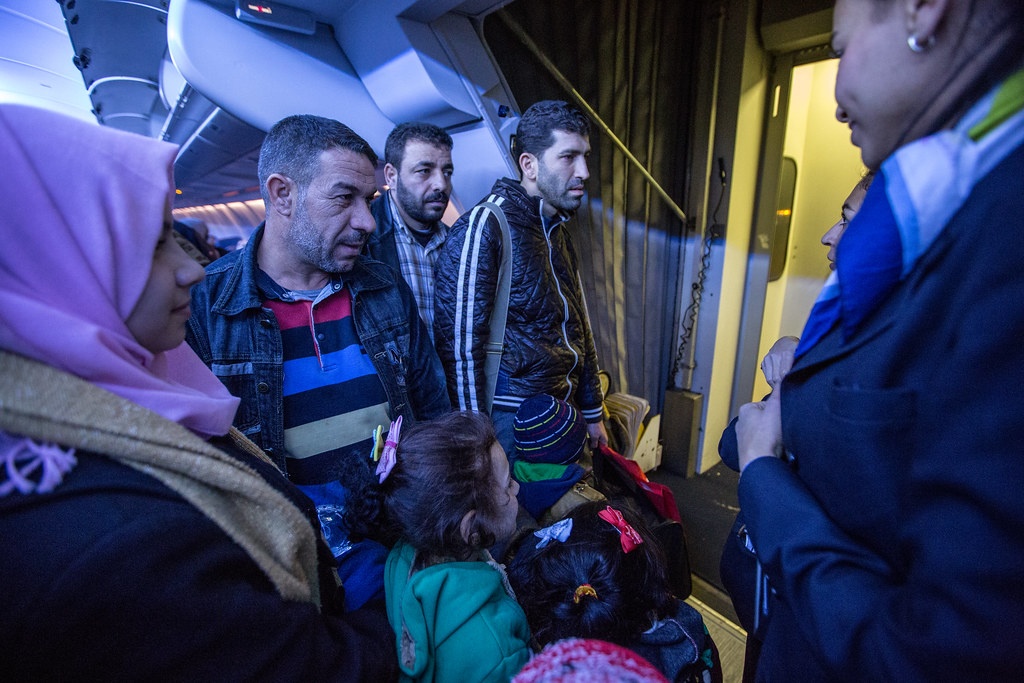Canada News
Federal election 2021: What the Conservatives don’t understand about refugee resettlement

With the Sept. 20 federal election approaching, the Conservative Party of Canada is pledging to “replace public, government-assisted refugee places with more private and joint sponsorship places.”
The plan argues “that privately sponsored refugees are more likely to succeed than publicly sponsored ones, even after they have been in Canada for a long time.” With few exceptions, the party says it will replace government resettlement with privately and jointly sponsored resettlement.
We argue that government-assisted refugees, in the long term, integrate nearly as well as privately sponsored refugees. More importantly, we believe ending government-assisted resettlement would jeopardize Canada’s global humanitarian leadership.
First, we want to make one thing clear: Canada does not select refugees based on how well they will succeed. While we of course hope to see refugees thrive and Canada supports them to do so upon arrival, it’s not the purpose of the program nor the basis of its admission criteria.
Refugees are selected based on their vulnerability and their need for protection.
Canada’s resettlement streams
Canada has offered refugee resettlement since 1978 with programs for both government-assisted refugees and the private sponsorship of refugees. In 2013, the Blended Visa Office-Referred Program was introduced to match government funds with funds from sponsors who would also provide personal support. Overall, more than 700,000 refugees have been resettled to Canada.
Read more: What Joe Biden can learn from Canada’s private refugee sponsorship program
The sponsorship program was, from the beginning, a way for Canadians to step up and provide support for refugees in need of protection. The principles of additionality (acting as a complement to government resettlement) and naming (identifying the refugees to be resettled — often via family or faith-based connections) have always been at the core of private sponsorship. Amid the Syrian crisis, private sponsorship has gained considerably in popularity, overtaking government resettlement numbers.
One study highlights how between 2010 and 2020 (prior to COVID-19 restrictions), sponsorship admissions increased by 400 per cent compared to government admissions that grew by only 25 per cent. The blended model works in periods of crisis, like with Syrian refugees and now probably with Afghan refugees, but otherwise attracts minimal interest.
The Liberals came to power in 2015 with the promise to resettle 25,000 Syrian refugees through their government program, a number that was ultimately complemented with additional private sponsorship admissions. The current election campaign is playing out as Afghan refugees, caught up in a humanitarian crisis following the chaotic withdrawal of United States-led forces this summer, are in need of protection. Canada has offered that protection through both government resettlement and private sponsorship.
While the COVID-19 pandemic has slowed resettlement arrivals, the government is planning in 2022 to admit 22,500 privately sponsored refugees, 12,500 government-assisted refugees and another 1,000 under the Blended Visa Office-Referred Program. Pledges to resettle Afghans are presumably in addition to these numbers.
None of Canada’s resettlement numbers are particularly high. Compared to economic and family-class immigration to Canada, humanitarian admissions are already the smallest stream, representing less than 15 per cent in the most recent Immigration Levels Plan.
Read more: Canada must step up to help millions displaced inside their own countries
Government-assisted refugees need protection
The Conservative Party’s rationale focuses on the integration potential of refugees rather than their protection needs. That’s despite a Statistics Canada study that shows the long-term (over 15 years) differences in outcomes between government-assisted refugees and those privately sponsored are not particularly stark.
Additionally, government-assisted refugees are selected solely on their need of protection. These refugees are often displaced for longer periods of time and have lower levels of education and less developed English/French language skills than privately sponsored refugees.
Privately sponsored refugees, on the other hand, also tend to have family or faith-based connections supporting them in Canada.
Canada’s humanitarian admissions are aimed at helping the global refugee population that the United Nations High Commissioner for Refugees (UNHCR) is responsible for supporting. That number now exceeds 20.7 million.
As Afghanistan too clearly illustrates, it can quickly swell.
Read more: Syrian refugees in Canada: Four years after the welcome
The UNHCR views resettlement as meeting three key purposes — it serves as a tool of international protection for individual refugees, it offers durable solutions and it’s a “tangible expression of international solidarity and a responsibility sharing mechanism, allowing states to help share responsibility for refugee protection, and reduce problems impacting the country of asylum.”
The UNHCR refers less than one per cent of refugee population for resettlement, and there are scant resettlement spaces made available by states. In its Projected Global Resettlement Needs report for 2022, released in June 2021 before the escalation of the crisis in Afghanistan, the UNHCR estimates 1,473,156 people will need resettlement.
Responsibility of countries, not citizens
In Canada, referrals for government resettlement and the Blended Visa Office-Referred Program come through the UNHCR. Sponsors can name people outside of these prioritized referrals, but government resettlement is the primary way for Canada to adhere to the UNHCR’s view that refugee protection, durable solutions and responsibility sharing should be paramount.
After all, it’s not up to individual citizens to respond when refugees need protection — it’s the responsibility of states.
Sponsorship spaces exist to help extend and expand Canada’s reach to refugees in need of protection. Canada’s complementary government and sponsorship resettlement programs position our country as a recognized leader in refugee protection.
The Conservative plan would not only close off a crucial route to protection for particularly vulnerable refugees with no ties to Canada, it would also diminish Canada’s international standing.
Shauna Labman, Associate Professor of Human Rights, Global College, University of Winnipeg and Adèle Garnier, Professeure adjointe, Département de géographie, Université Laval
This article is republished from The Conversation under a Creative Commons license. Read the original article.





















